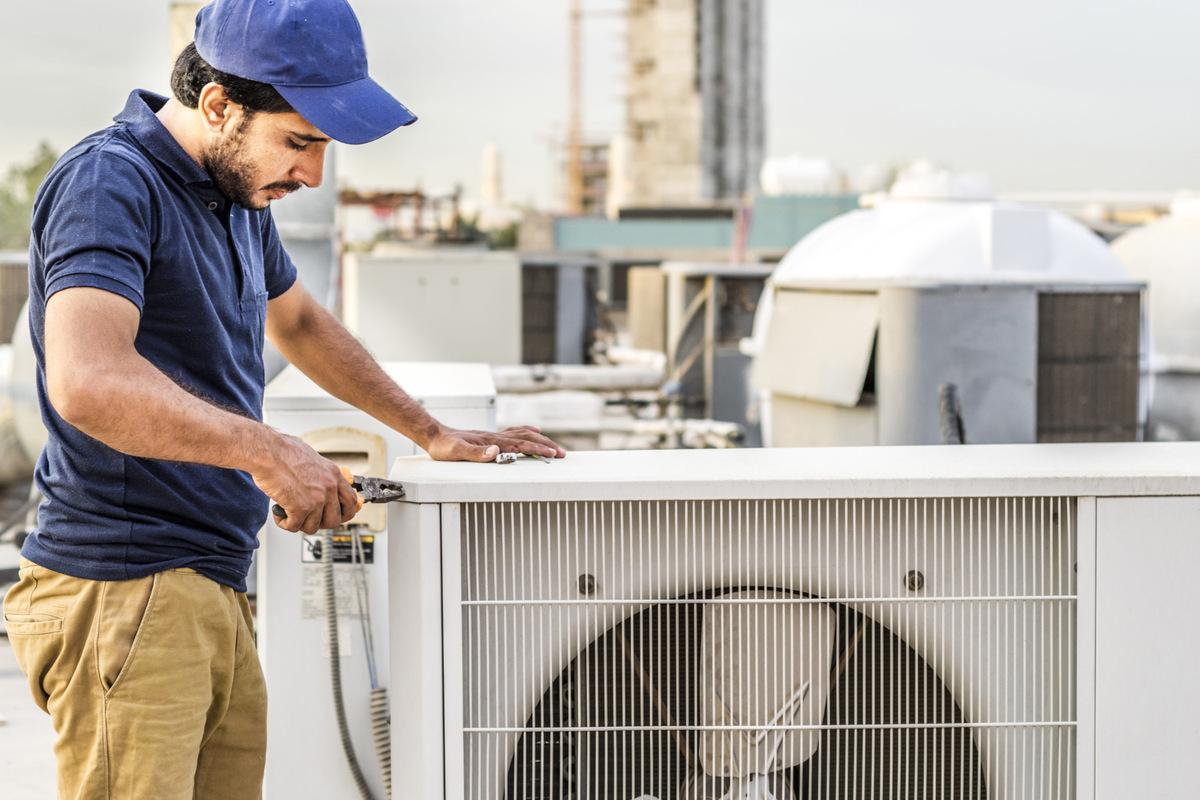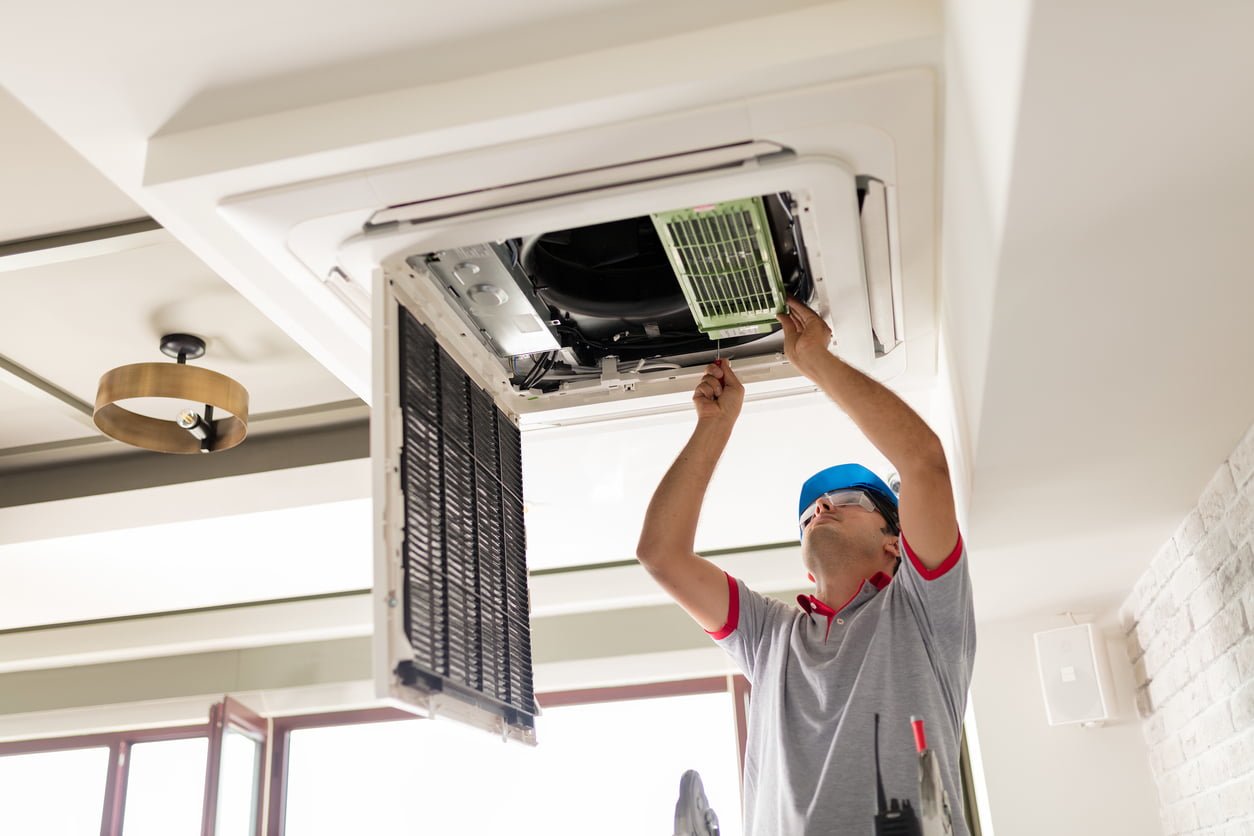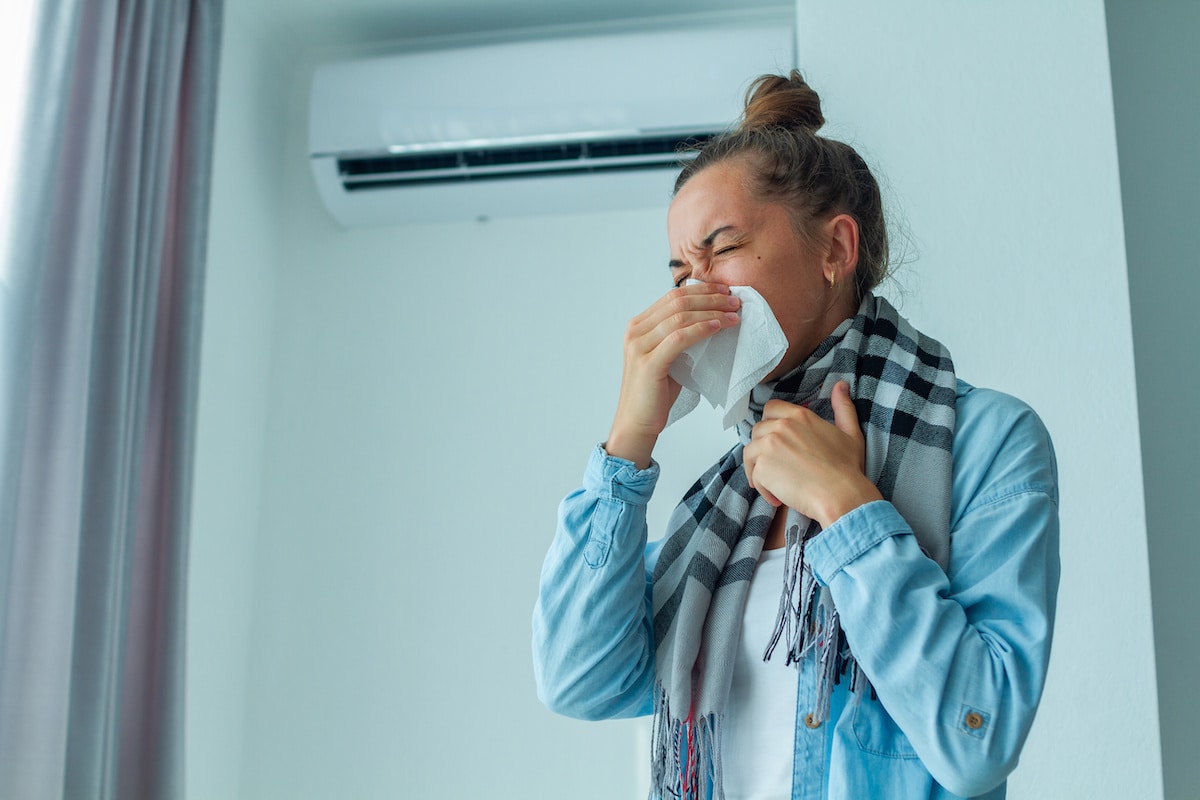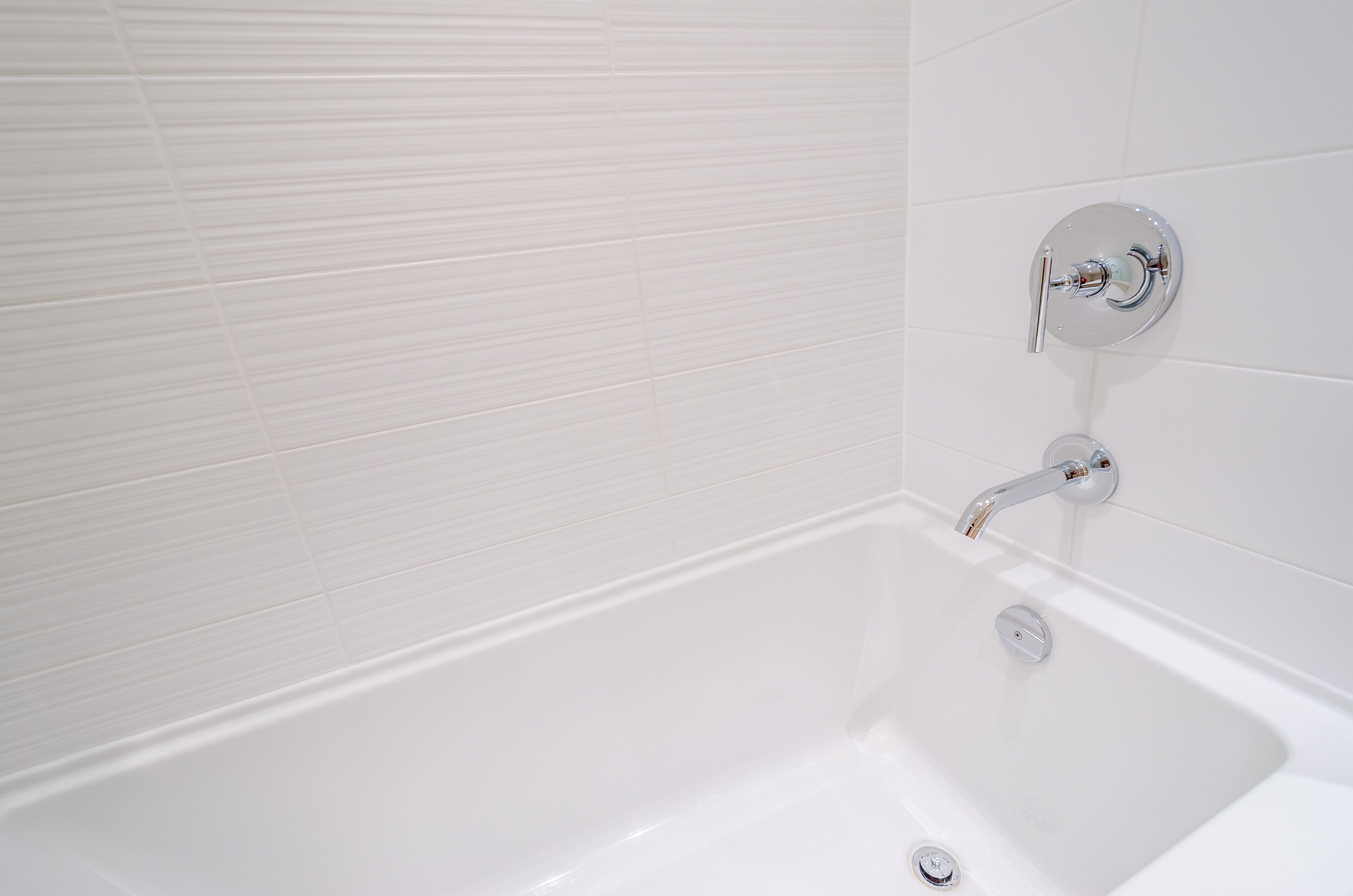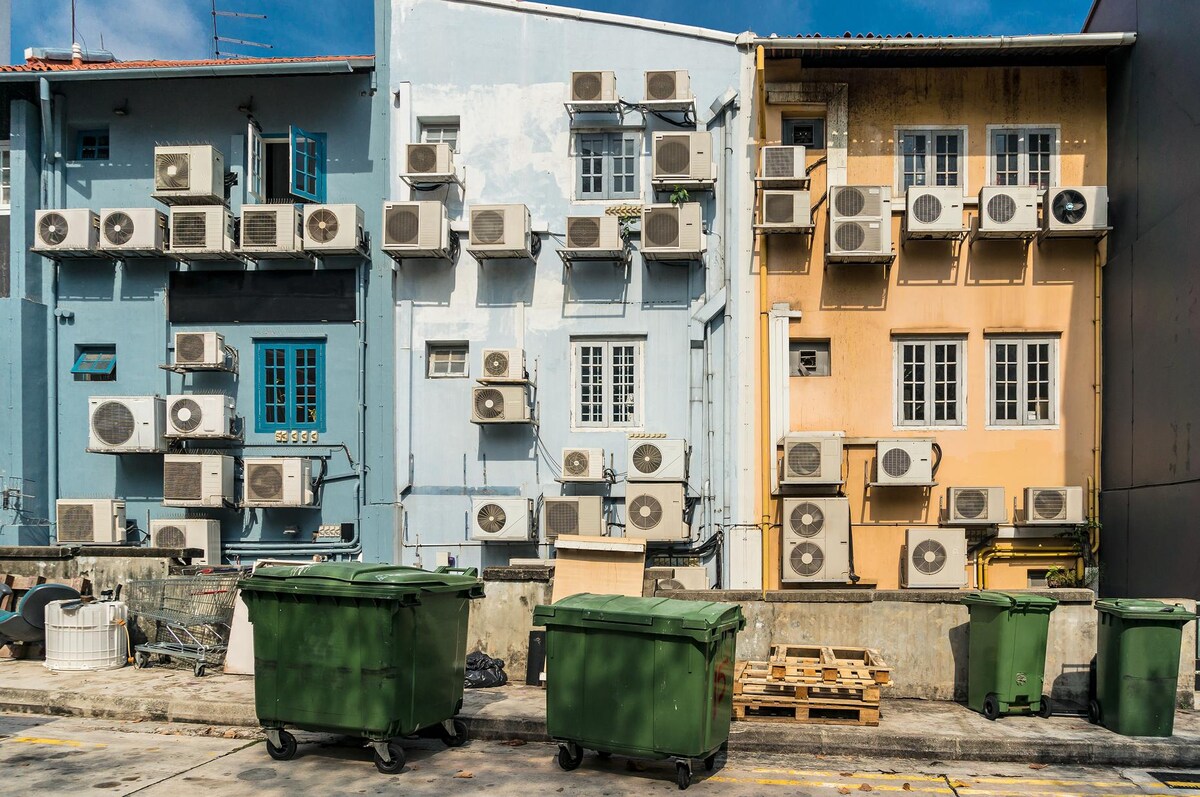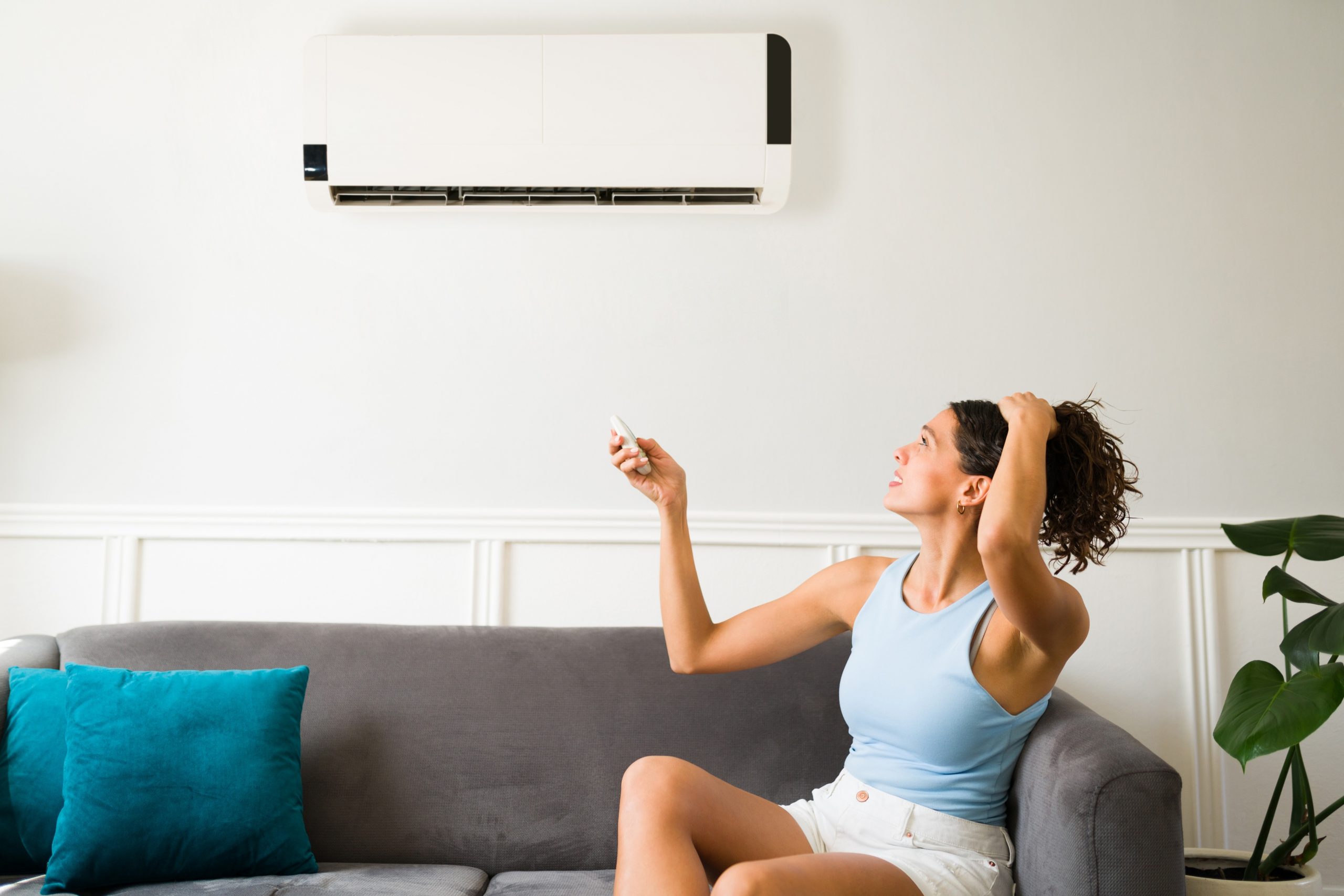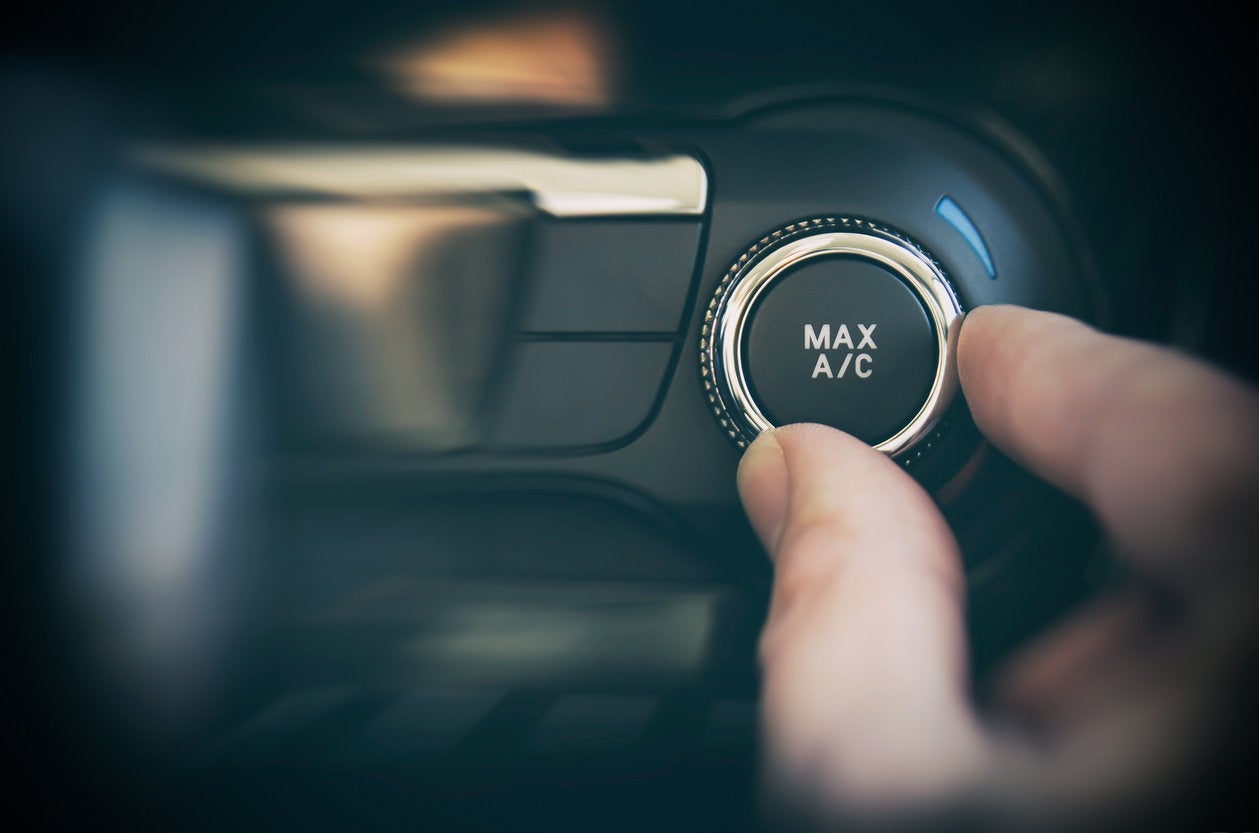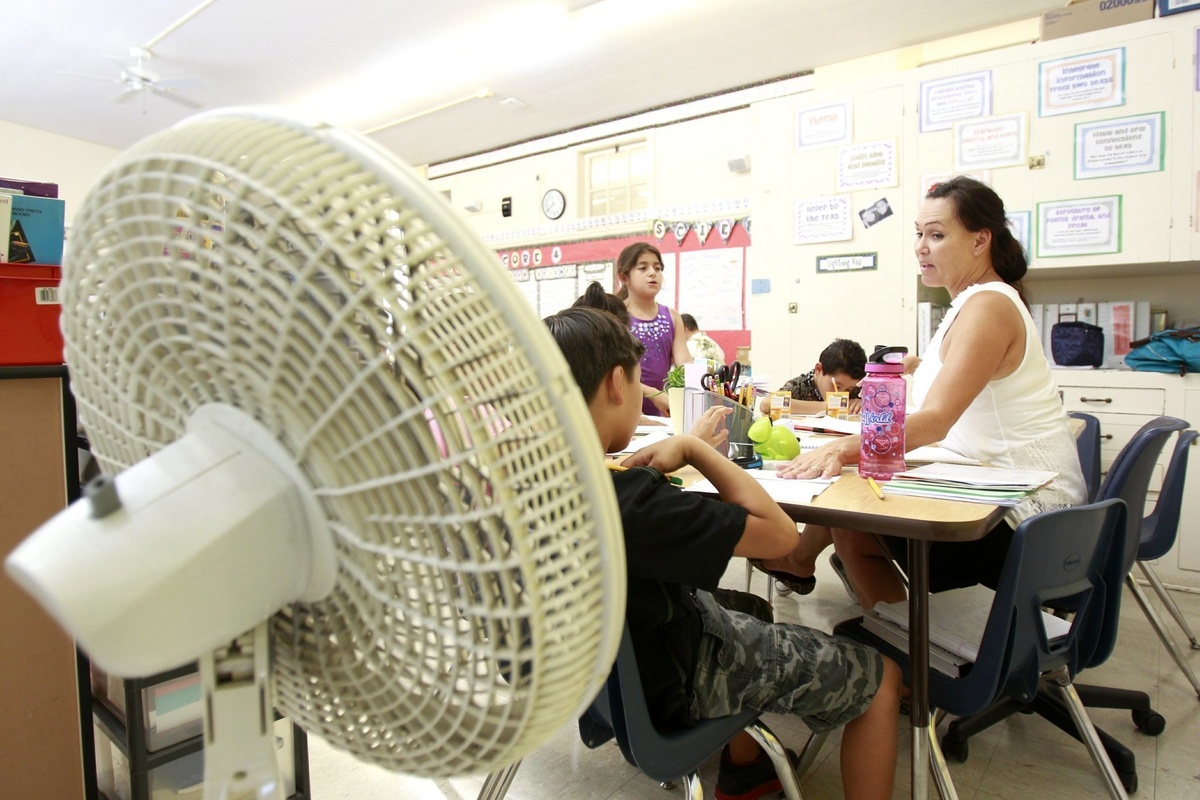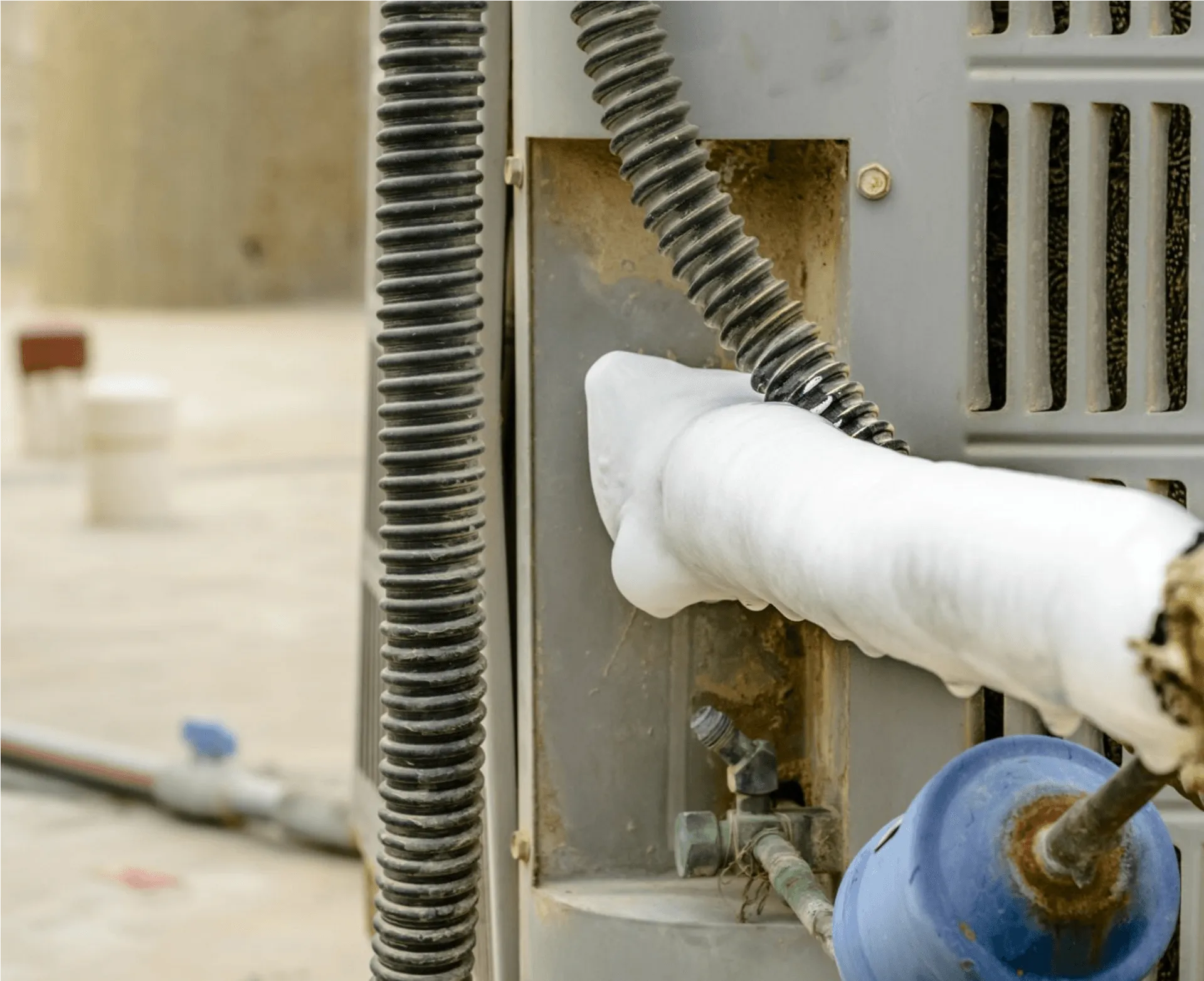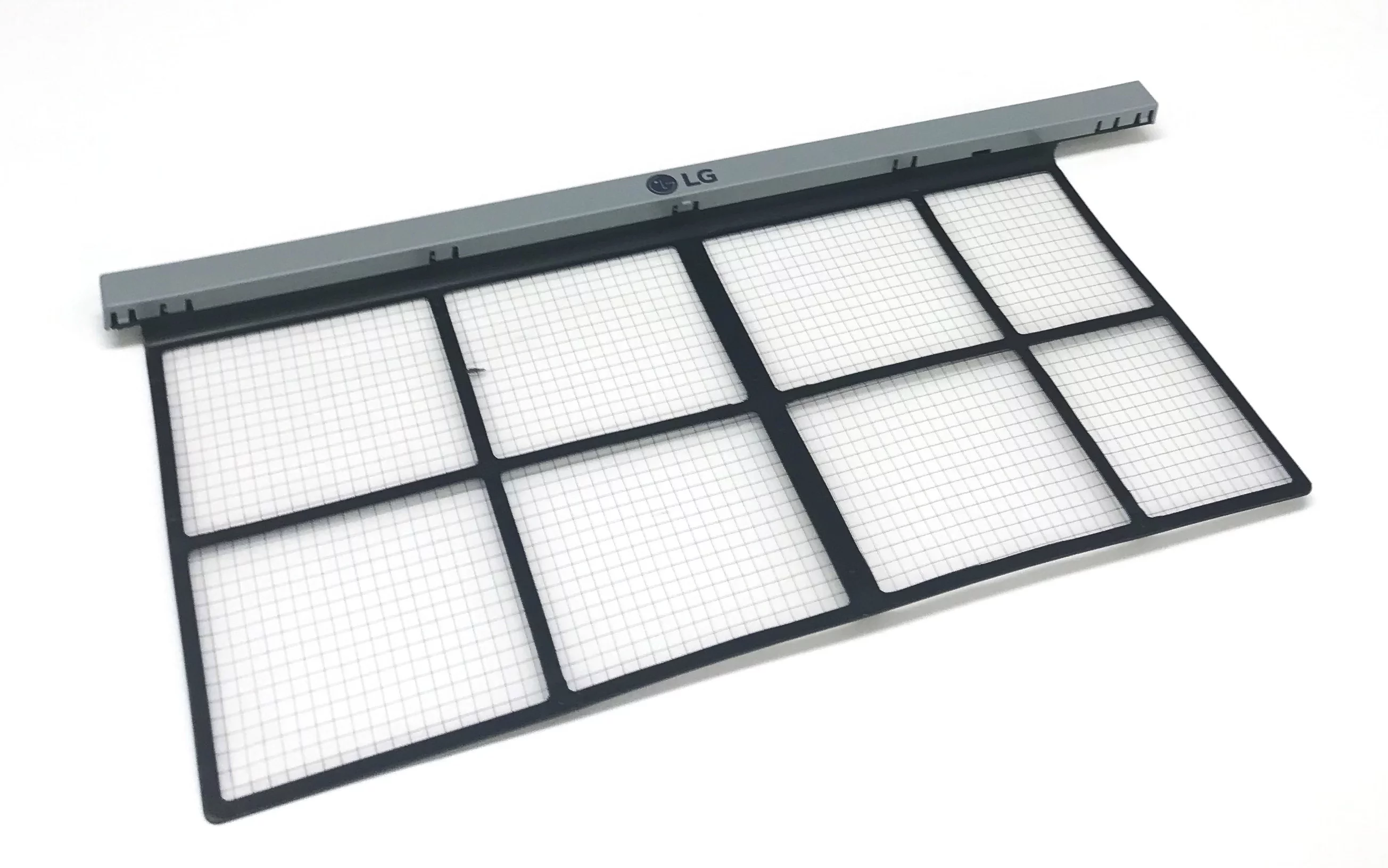Home>Home Maintenance>Why Am I Allergic To Air Conditioning
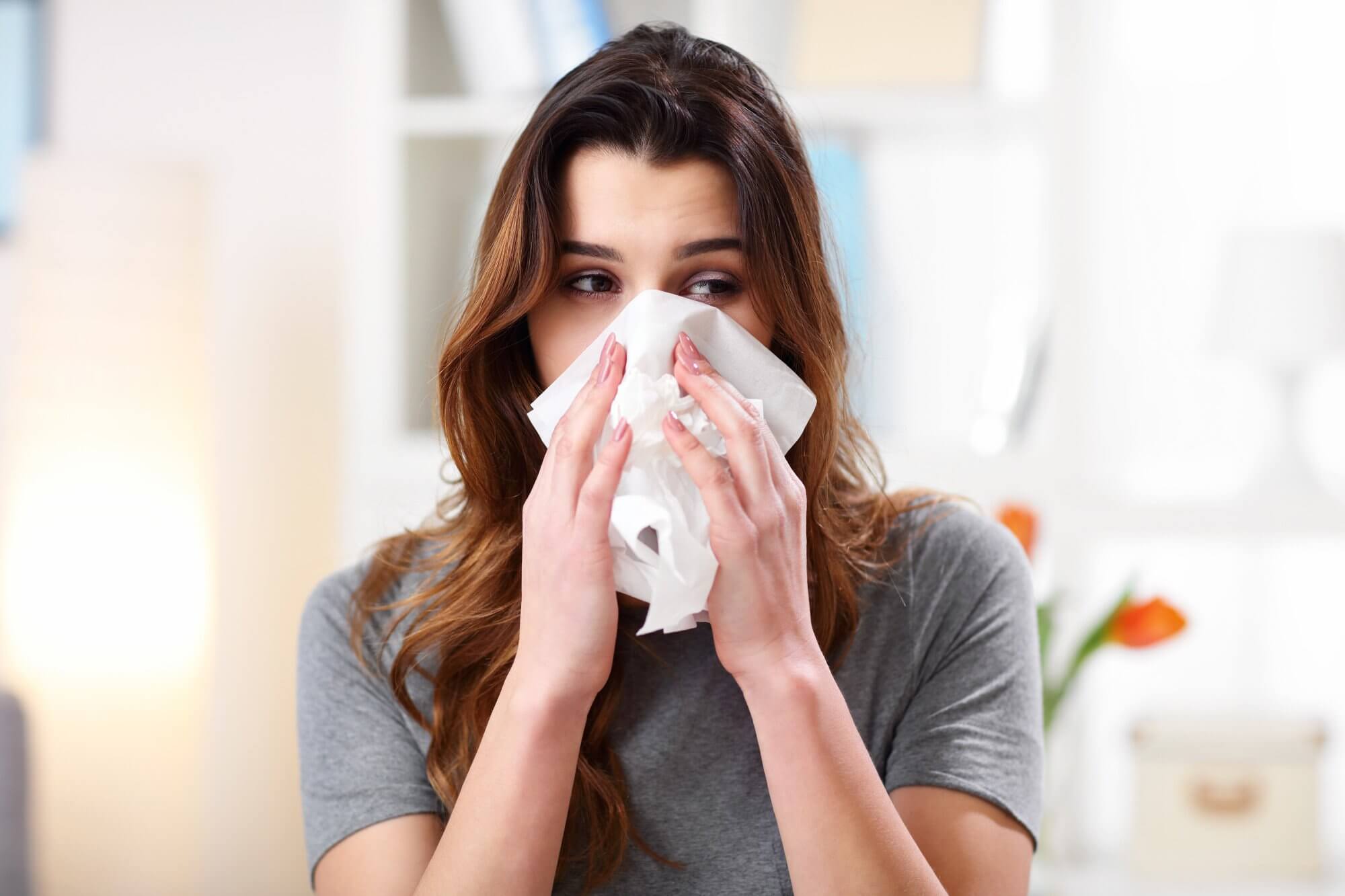

Home Maintenance
Why Am I Allergic To Air Conditioning
Modified: March 6, 2024
Discover why some people are allergic to air conditioning and learn how proper home maintenance can alleviate these symptoms.
(Many of the links in this article redirect to a specific reviewed product. Your purchase of these products through affiliate links helps to generate commission for Storables.com, at no extra cost. Learn more)
Introduction
Welcome to our comprehensive guide on air conditioning allergies! If you’ve ever experienced sneezing, itchy eyes, or a runny nose whenever the air conditioner is running, you’re not alone. Many people suffer from allergies that are triggered or exacerbated by air conditioning systems. In this article, we will dive deep into the causes of air conditioning allergies, the common allergens found in these systems, and effective strategies to reduce and manage your symptoms.
Allergies occur when the immune system overreacts to harmless substances, known as allergens. These allergens can be found in various elements of our environment, including the air we breathe. Air conditioning systems play a significant role in filtering and circulating air, but they can also become breeding grounds for allergens if not properly maintained. Understanding the causes and symptoms of air conditioning allergies is crucial in order to effectively address and minimize the discomfort they can cause.
In the following sections, we will explore the primary causes of air conditioning allergies, the most common allergens that can be found in these systems, and practical steps you can take to reduce your exposure and manage your symptoms. It’s important to note that while these suggestions can help alleviate your discomfort, they should not replace professional medical advice. If your symptoms persist or worsen, it is recommended to seek medical help.
So, let’s dive in and explore the world of air conditioning allergies, learning how we can keep our homes comfortable and allergen-free.
Key Takeaways:
- Keep your air conditioning system clean and well-maintained to reduce allergens like dust mites, mold, and pet dander, and minimize symptoms like sneezing, itchy eyes, and nasal congestion.
- If your air conditioning allergies persist, seek medical help for accurate diagnosis, personalized treatment plans, and strategies to manage symptoms and improve your quality of life.
Read more: Why Am I Allergic To Grass Pollen
Understanding Allergies
Allergies are a common condition that affects millions of people worldwide. They occur when the immune system mistakenly identifies a harmless substance as harmful and launches an attack to defend the body. These substances, known as allergens, can be airborne, ingested, or come into contact with the skin.
When allergens enter the body, they trigger the release of histamines, which are chemicals that cause allergic reactions. The symptoms of allergies can vary widely, ranging from mild to severe. Common allergic reactions include sneezing, itching, watery eyes, nasal congestion, wheezing, coughing, and skin rashes.
There are several different types of allergies, including seasonal allergies (also known as hay fever), allergic rhinitis, food allergies, insect sting allergies, and drug allergies, among others. Each type of allergy has its own set of triggers and symptoms.
Seasonal allergies, often caused by pollen from trees, grasses, or weeds, are prevalent during certain times of the year when these plants release their pollen into the air. Allergic rhinitis, on the other hand, refers to year-round allergies to common substances such as dust mites, pet dander, mold spores, and cockroach debris.
When it comes to air conditioning allergies, the most common allergens include dust mites, mold spores, pet dander, and pollen. These allergens can accumulate in the air conditioning system and be circulated throughout the indoor environment, triggering allergic reactions in susceptible individuals.
Now that we have a basic understanding of allergies, their causes, and symptoms, let’s delve into the specific causes of air conditioning allergies and how they can be managed.
Causes of Air Conditioning Allergies
Air conditioning systems are designed to cool and circulate air, creating a comfortable indoor environment. However, if not properly maintained, these systems can become breeding grounds for allergens, leading to air conditioning allergies. Here are some common causes:
- Dust and Dust Mites: Dust is a common allergen that can accumulate in air conditioning systems, especially in the air filters and ductwork. Dust mites, microscopic organisms that thrive in warm and humid environments, feed on the dust and their waste particles can trigger allergic reactions.
- Mold and Mildew: Air conditioning systems create a cool and damp environment, providing ideal conditions for mold and mildew growth. When these fungi release spores into the air, they can be inhaled and cause allergic reactions. Mold and mildew can accumulate in the evaporator coil, condensate drain pan, and air ducts.
- Pet Dander: If you have pets, their dander (flakes of skin), saliva, and urine can become trapped in the air conditioning filters and ducts. These allergenic particles can circulate in the air and trigger allergic reactions in sensitive individuals.
- Pollen: Pollen, another common allergen, can enter homes through open windows and doors or be carried indoors on clothing. If not filtered properly, pollen particles can be circulated by the air conditioning system, causing allergies in those who are sensitive to pollen.
- Chemical Sensitivities: Some individuals may experience allergic reactions or sensitivities to certain chemicals found in air conditioning systems, such as cleaning agents, disinfectants, or air fresheners. These chemical irritants can exacerbate allergy symptoms.
It’s important to note that the severity of air conditioning allergies can vary based on individual sensitivity, the cleanliness of the system, and the levels of allergen exposure. Regular maintenance and proper cleaning of air conditioning systems can significantly reduce the risk of allergic reactions.
Now that we understand the causes of air conditioning allergies, let’s explore the common symptoms associated with these allergies in the next section.
Symptoms of Air Conditioning Allergies
Air conditioning allergies can manifest in various ways, causing discomfort and affecting the overall quality of life. The symptoms experienced can vary from person to person, depending on the individual’s sensitivity and the specific allergen involved. Here are some common symptoms associated with air conditioning allergies:
- Sneezing: Frequent bouts of sneezing, especially upon entering a room or when the air conditioner starts running, can be a sign of air conditioning allergies.
- Itchy and Watery Eyes: Allergens circulating in the air can irritate the eyes, leading to redness, itching, and excessive tearing.
- Nasal Congestion: Air conditioning allergens can cause nasal passages to swell and become congested, leading to difficulty in breathing through the nose.
- Runny or Stuffy Nose: Excessive mucus production can result in a runny or stuffy nose, causing discomfort and a dripping sensation.
- Coughing: Allergens present in the air conditioning system can trigger persistent coughing, especially if the air is dry or contains irritants.
- Wheezing: For individuals with underlying respiratory conditions, such as asthma, air conditioning allergies can cause wheezing and difficulty in breathing.
- Skin Rashes or Hives: Direct contact with allergens or exposure to them through the air can result in skin rashes, itching, or hives.
- Fatigue and Headaches: Prolonged exposure to allergens can lead to fatigue and frequent headaches.
Please note that these symptoms can also be caused by other factors or medical conditions. It’s important to consult with a healthcare professional to properly diagnose and treat your symptoms.
Now that we understand the symptoms associated with air conditioning allergies, let’s move on to exploring the common allergens that can be found in air conditioning systems.
Consider using a high-efficiency particulate air (HEPA) filter in your air conditioning unit to reduce allergens like dust, pollen, and mold spores, which can trigger allergic reactions. Regular maintenance and cleaning of the unit can also help minimize allergens.
Common Allergens in Air Conditioning Systems
Air conditioning systems can harbor a variety of allergens that can trigger allergic reactions in susceptible individuals. Understanding these common allergens is essential for effectively managing air conditioning allergies. Here are some of the most frequent allergens found in air conditioning systems:
- Dust Mites: These microscopic organisms thrive in warm and humid environments and feed on dust particles. Dust mites and their waste products can accumulate in the air conditioning filters, ducts, and vents.
- Mold and Mildew: Air conditioning systems create a cool and damp environment, making them susceptible to mold and mildew growth. The dampness can lead to condensation and moisture buildup, providing an ideal breeding ground for these fungi.
- Pet Dander: If you have pets, their dander (skin flakes), saliva, and urine can become trapped in the air conditioning filters and ducts. These allergenic particles can circulate in the air and trigger allergic reactions.
- Pollen: During certain seasons, pollen from trees, grasses, and weeds can enter the air conditioning system through open windows or be carried indoors on clothing. If not properly filtered, pollen particles can circulate and cause allergies in sensitive individuals.
- Bacteria and Viruses: Air conditioning systems can potentially become breeding grounds for bacteria and viruses if not properly cleaned and maintained. These microorganisms can cause respiratory infections and exacerbate allergy symptoms.
- Chemical Irritants: Some air conditioning systems use chemicals, such as cleaning agents and disinfectants, to maintain cleanliness. However, these chemicals can be irritants to individuals with sensitivities or allergies to certain compounds.
Regular cleaning and maintenance of air conditioning systems, including the replacement of filters and proper control of humidity levels, are crucial in reducing the presence of these allergens. Additionally, improving indoor air quality through effective ventilation and the use of air purifiers can further minimize allergen exposure.
Now that we are aware of the common allergens found in air conditioning systems, let’s learn about strategies to reduce and manage air conditioning allergies.
Read more: Why Am I Feeling Itchy In Bed
How to Reduce Air Conditioning Allergies
If you suffer from air conditioning allergies, there are several strategies you can employ to reduce allergen exposure and manage your symptoms. Here are some effective methods to consider:
- Regular HVAC Maintenance: Schedule regular maintenance for your air conditioning system. This includes cleaning or replacing filters, cleaning the coils, and ensuring proper drainage to prevent mold and mildew growth.
- Use High-Quality Air Filters: Invest in high-quality air filters that are specifically designed to trap allergens. Look for filters with a higher MERV (Minimum Efficiency Reporting Value) rating to effectively capture particles such as dust mites, pollen, and pet dander.
- Clean Air Ducts and Vents: Periodically clean the air ducts and vents to remove dust, debris, and allergens that may have accumulated over time. Consider hiring professionals for a thorough cleaning of the entire ductwork system.
- Control Humidity Levels: Maintain proper humidity levels in your home, as excessive humidity can promote mold and mildew growth. Use dehumidifiers or air conditioners with built-in humidity control features to keep humidity within the recommended range of 30-50%.
- Keep Windows and Doors Closed: During peak pollen seasons, keep windows and doors closed to prevent allergens from entering your home. Use air conditioning to filter and circulate indoor air instead.
- Vacuum and Dust Regularly: Regularly vacuum your home using a vacuum cleaner with a HEPA filter to effectively remove dust mites, pet dander, and other allergens from carpets, rugs, and furniture. Dust surfaces regularly with a damp cloth to prevent allergens from becoming airborne.
- Minimize Pet Allergens: Keep pets out of bedrooms and regularly groom them to reduce shedding. Consider using air purifiers with pet-specific filters to help remove pet dander from the air.
- Use Air Purifiers: Employ the use of air purifiers with HEPA filters to capture and remove allergens from the air. Place them in rooms where you spend the most time, such as bedrooms and living areas.
- Avoid Smoking Indoors: Smoking indoors can introduce a variety of toxins and irritants into the air, worsening allergies. Maintain a smoke-free environment to improve indoor air quality.
- Monitor Indoor Air Quality: Consider using indoor air quality monitors to keep track of the allergen levels in your home. These devices can provide real-time data and help you make informed decisions about maintaining a healthy indoor environment.
Implementing these measures can significantly reduce allergen levels in your home and alleviate air conditioning allergies. However, if your symptoms persist or worsen, it is advisable to consult a healthcare professional for further evaluation and guidance.
Next, let’s discuss when it’s time to seek medical help for your air conditioning allergies.
Seeking Medical Help
If you have tried various strategies to reduce air conditioning allergies but your symptoms persist or worsen, it may be time to seek medical help. A healthcare professional specializing in allergies can provide a proper diagnosis and recommend appropriate treatment options. Here are some reasons to consider seeking medical assistance:
- Persistent Symptoms: If your allergy symptoms continue to disrupt your daily life and negatively impact your quality of life despite your efforts to alleviate them, consulting a doctor is recommended.
- Severe Reactions: In some cases, air conditioning allergies can lead to severe allergic reactions, such as difficulty breathing, chest tightness, or extreme swelling. These symptoms require immediate medical attention.
- Underlying Conditions: If you have pre-existing respiratory conditions, such as asthma, that are exacerbated by air conditioning allergies, it is essential to seek medical guidance to manage both conditions effectively.
- Identification of Allergens: Allergy testing conducted by a medical professional can help identify the specific allergens triggering your symptoms. This information can assist in developing targeted treatment plans and avoidance strategies.
- Allergy Medications: Depending on the severity of your symptoms, your doctor may recommend over-the-counter or prescription allergy medications to control your allergies. These can include antihistamines, nasal sprays, or eye drops.
- Allergy Immunotherapy: For individuals with severe or persistent allergies, allergy immunotherapy, such as allergy shots or sublingual tablets, may be recommended. These treatments can help desensitize the immune system to specific allergens over time.
- Allergen Avoidance Strategies: Your healthcare provider can provide personalized advice on how to effectively minimize your exposure to allergens, tailored to your specific allergy profile and living situation.
Working closely with a healthcare professional specialized in allergies can provide valuable support and guidance in managing your air conditioning allergies. They can help develop an individualized treatment plan to alleviate your symptoms and improve your overall well-being.
As we conclude this guide, it’s important to remember that by taking proactive measures, seeking medical help when necessary, and maintaining a clean and well-maintained air conditioning system, you can reduce the impact of air conditioning allergies and create a more comfortable indoor environment.
Conclusion
Air conditioning allergies can be a frustrating and uncomfortable experience for many individuals. However, by understanding the causes, symptoms, and common allergens associated with air conditioning systems, you can take proactive steps to reduce allergen exposure and manage your symptoms effectively.
In this comprehensive guide, we explored the various causes of air conditioning allergies, including dust mites, mold, pet dander, pollen, and chemical irritants. We also discussed the common symptoms that individuals may experience, such as sneezing, itchy eyes, nasal congestion, and coughing.
To minimize air conditioning allergies, we provided practical strategies on how to reduce allergens in your home. Regular HVAC maintenance, using high-quality air filters, and keeping windows and doors closed during pollen seasons are just a few of the steps you can take to create a healthier indoor environment. Additionally, controlling humidity levels, vacuuming regularly, and utilizing air purifiers can further reduce allergen exposure.
However, if your symptoms persist or worsen, it is important to seek medical help. Allergists and healthcare professionals specializing in allergies can provide an accurate diagnosis, identify specific allergens, and recommend appropriate treatment options. This may include allergy medications, immunotherapy, or allergen avoidance strategies tailored to your individual needs.
By taking these steps and working closely with medical professionals, you can effectively manage your air conditioning allergies and improve your overall quality of life. Remember, everyone’s allergies are unique, so it may take some trial and error to find the best combination of strategies and treatments for your specific situation.
Finally, we hope that this guide has provided valuable insights and practical tips to help you navigate the world of air conditioning allergies. Now armed with this knowledge, you can create a more comfortable and allergen-free living environment and enjoy the benefits of a well-functioning air conditioning system.
Frequently Asked Questions about Why Am I Allergic To Air Conditioning
Was this page helpful?
At Storables.com, we guarantee accurate and reliable information. Our content, validated by Expert Board Contributors, is crafted following stringent Editorial Policies. We're committed to providing you with well-researched, expert-backed insights for all your informational needs.
